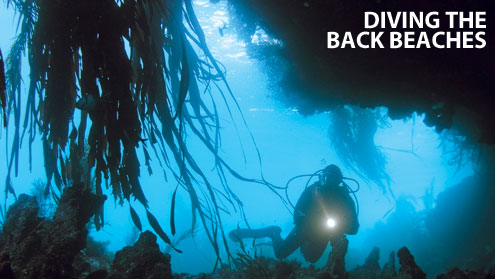sparragus
Contributor
I live in Puerto Rico, a small island blessed with numerous beaches and plenty of shore. Surprisingly, finding comprehensive online information about shore diving here can be challenging. Although there are existing shore diving spots around the island, the details for exploring lesser-known sites are often lacking.
I want to change that by launching a project that documents and surveys dive sites along Puerto Rico's shores. Similar to what websites like Fin Strokes and Jack's Diving Locker do, I plan to visit new locations every weekend so I can explore, take notes, create maps, and share my findings with others.
However, I'm unsure how to approach this safely. That's why I'm reaching out to you for advice. Do you know of any resources on shore diving? I'm particularly interested in guides on safely diving for the purpose of creating detailed site documentation. Whether it’s videos, articles, books, or courses, any information would be helpful.
If you have tips of your own, I'd love to hear them too.
I want to change that by launching a project that documents and surveys dive sites along Puerto Rico's shores. Similar to what websites like Fin Strokes and Jack's Diving Locker do, I plan to visit new locations every weekend so I can explore, take notes, create maps, and share my findings with others.
However, I'm unsure how to approach this safely. That's why I'm reaching out to you for advice. Do you know of any resources on shore diving? I'm particularly interested in guides on safely diving for the purpose of creating detailed site documentation. Whether it’s videos, articles, books, or courses, any information would be helpful.
If you have tips of your own, I'd love to hear them too.





